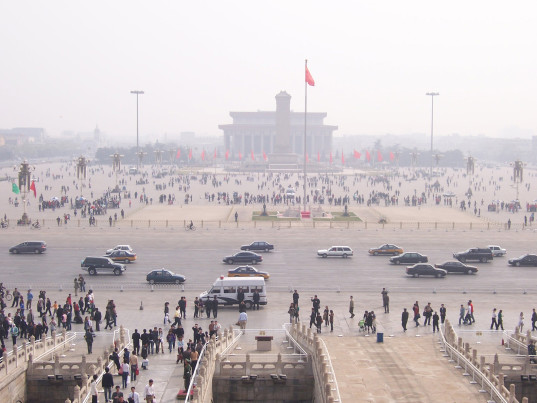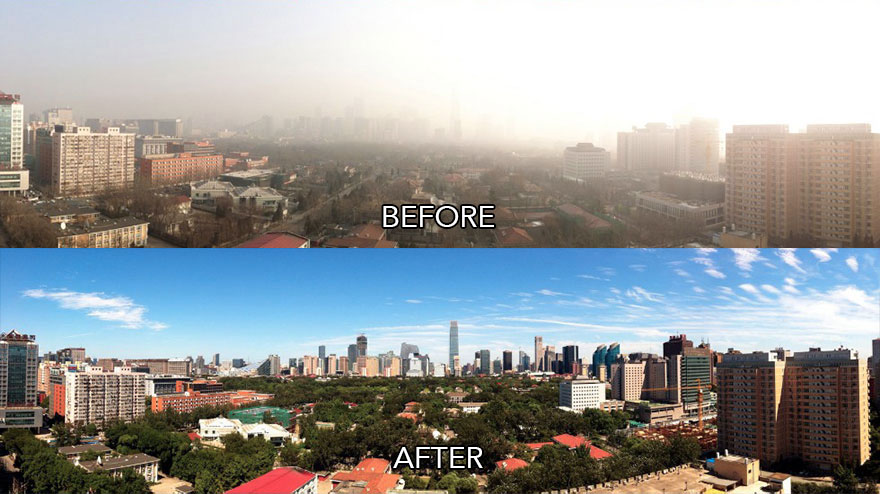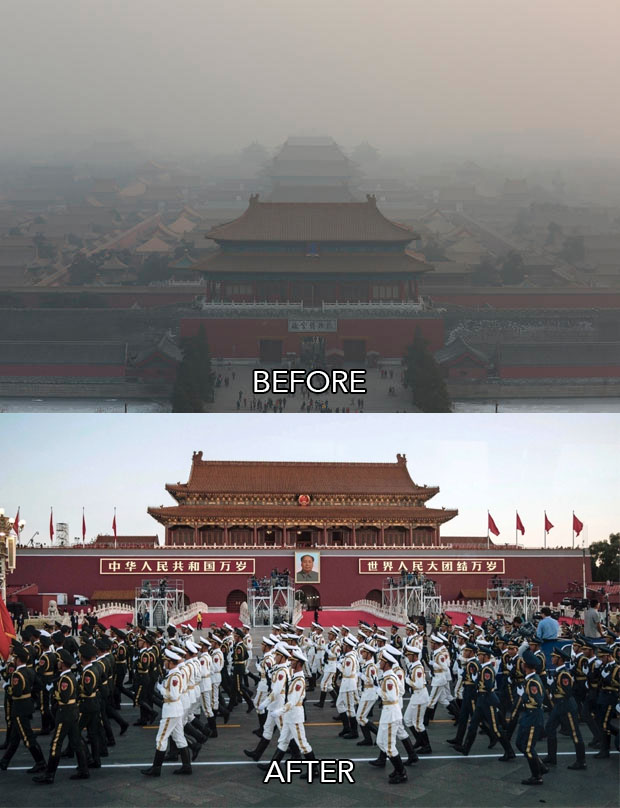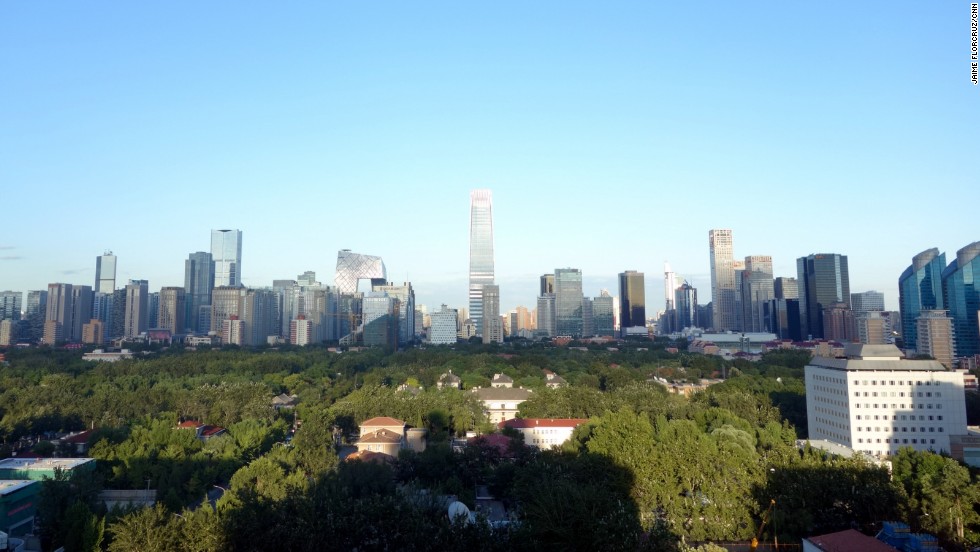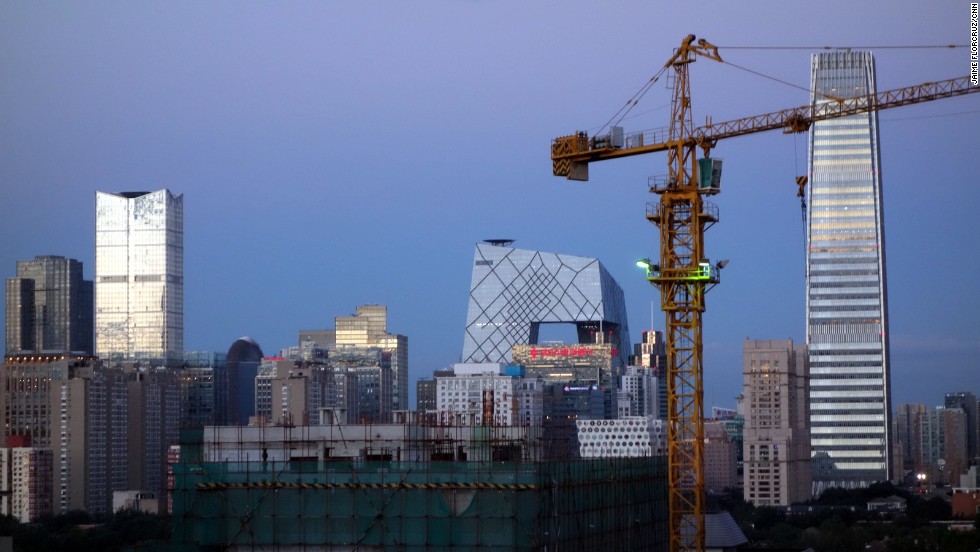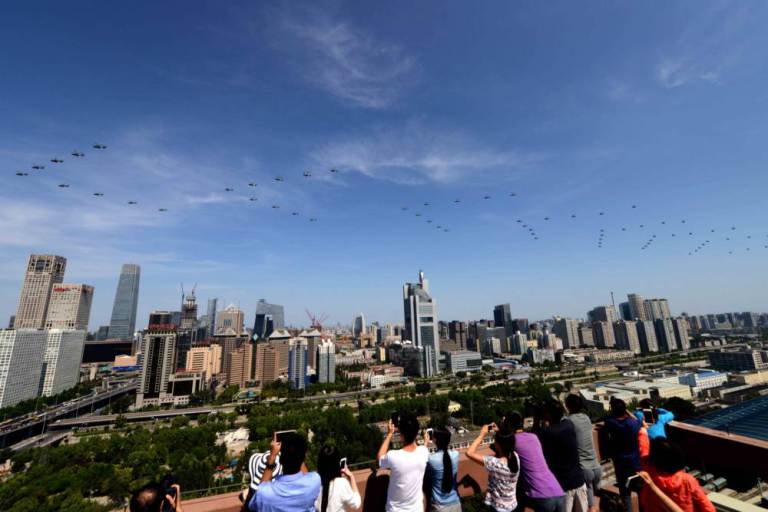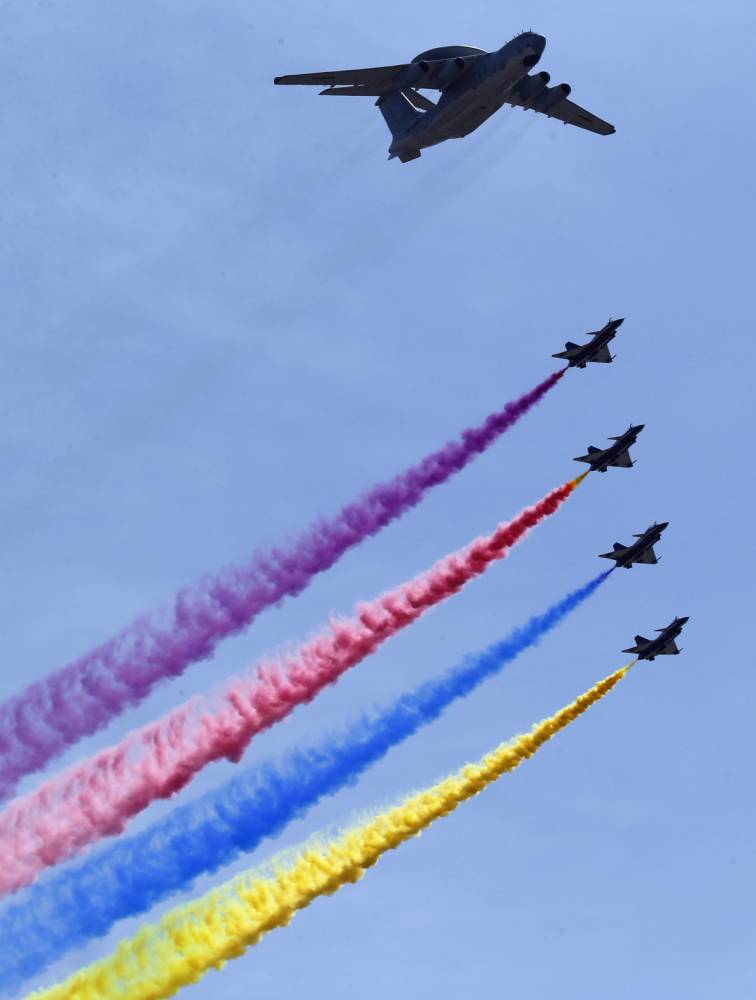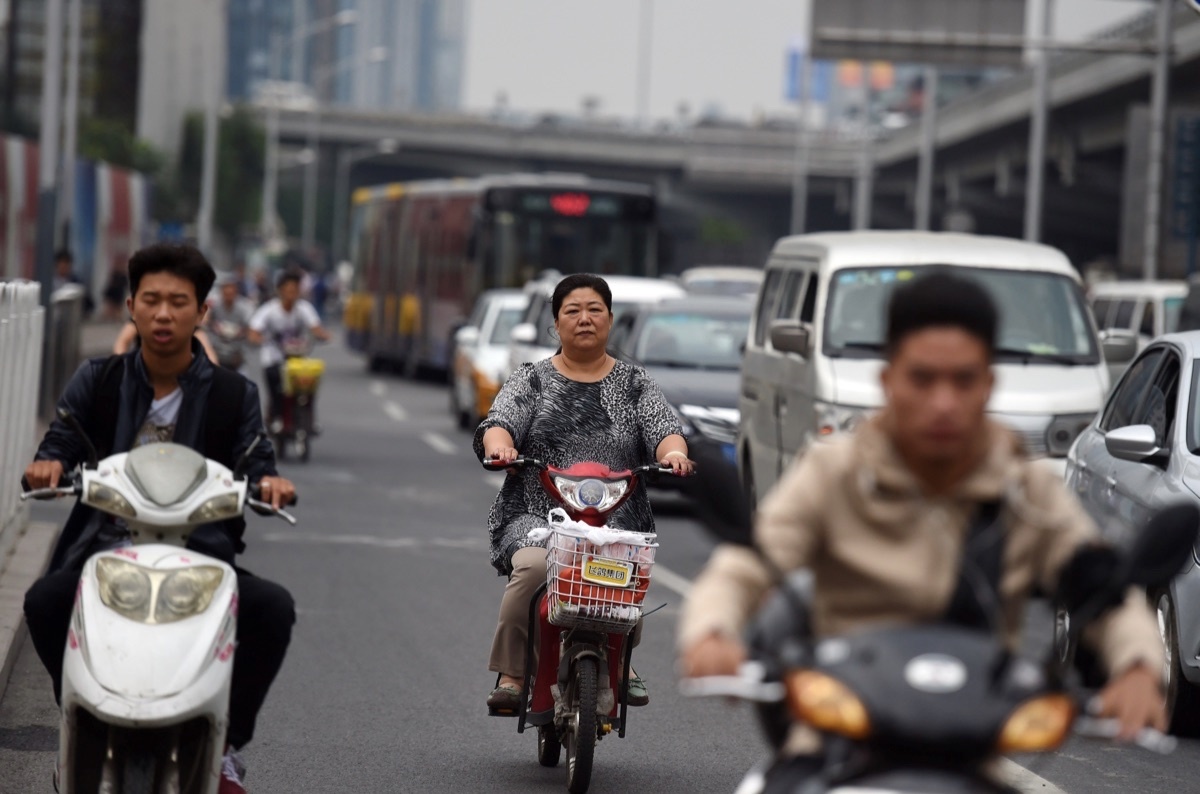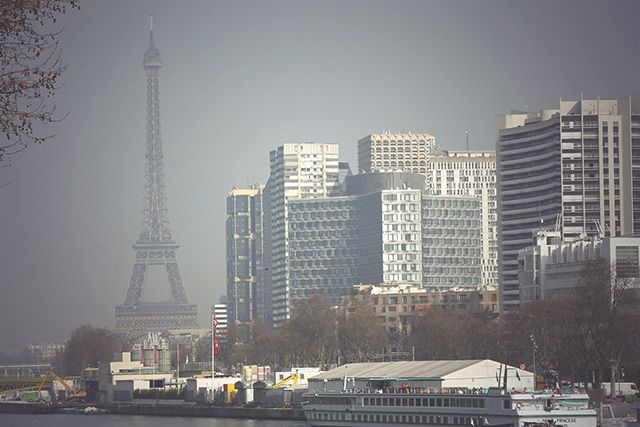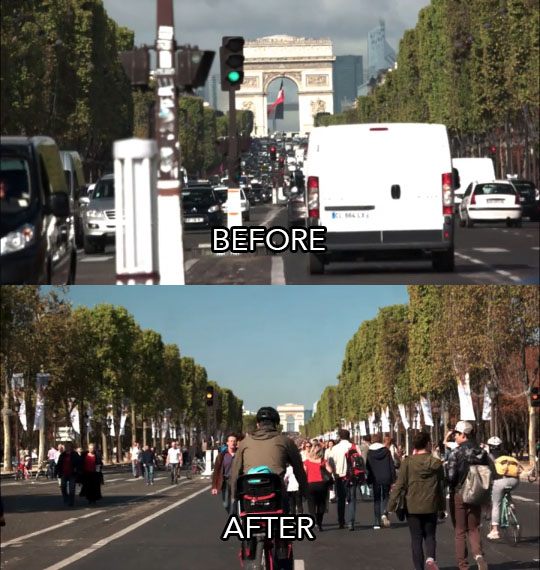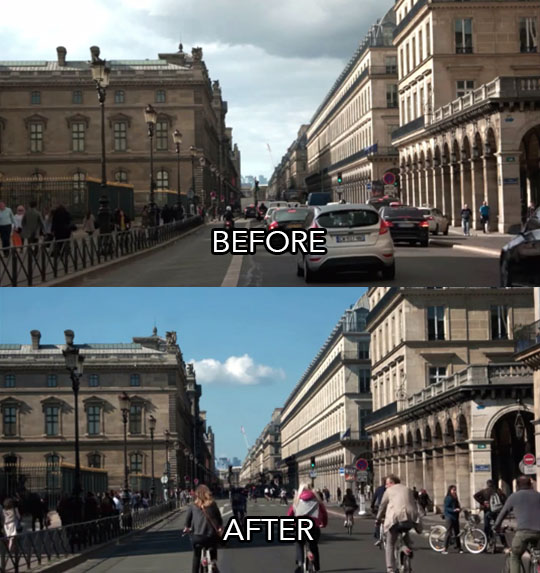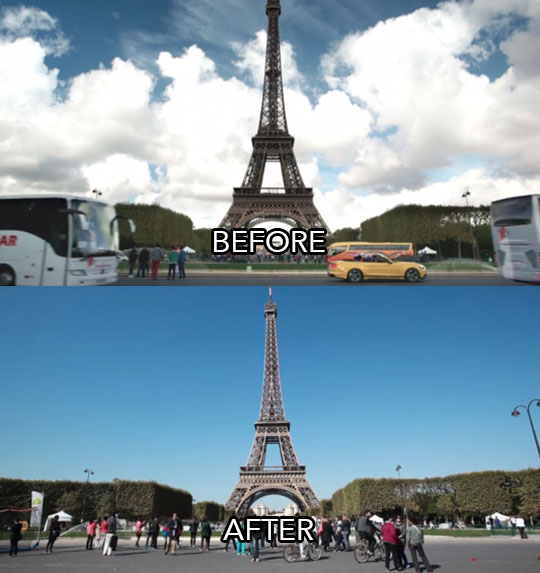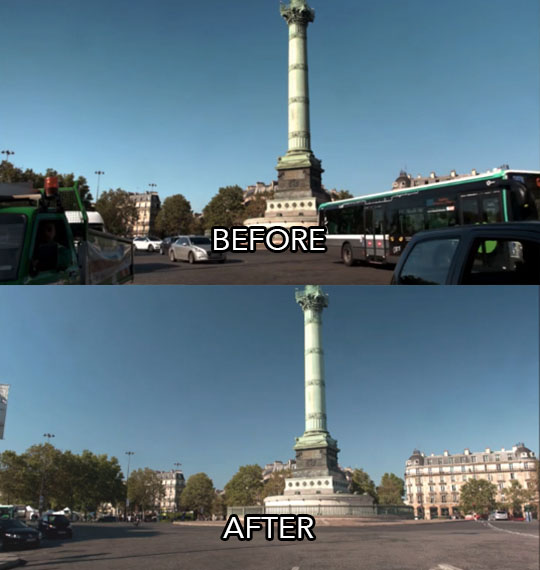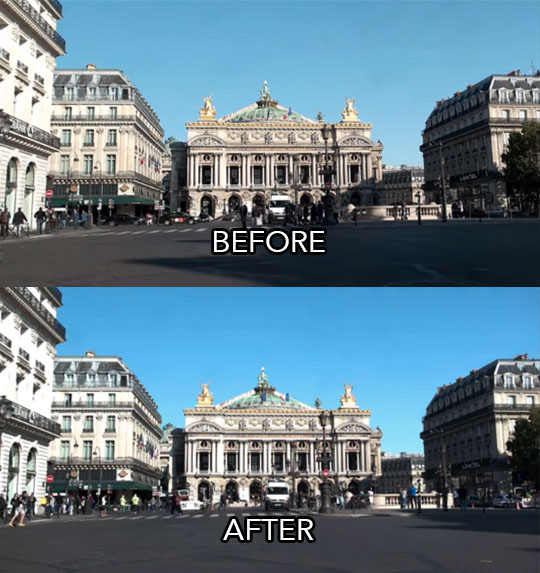Paris And Beijing Banned Cars From The Roads And The Results Were Pretty Incredible
Air pollution is bad, but the transformation that resulted from Paris and Beijing's car-free policies - albeit short-lived - leaves us hopeful that change is still possible.
Can you imagine a day in the bustling city without the infernal honking cars, blaring sirens, revving truck engines, and lung-choking exhaust fumes?
In the 2 weeks leading to China's biggest military parade in celebration of the 70th anniversary of their victory in World War II on 3 September, several restrictions were put in place including banning 5 million cars from driving in the main urban hub
The city, which is usually shrouded in haze due to emissions from vehicles and factories, cleared up to reveal crystal blue skies and a touch of colour to its panoramic landscape
Construction works were also halted while factories were shut down to help clear the air in preparation for the parade
By the day of the parade, the air quality had dramatically improved, dropping to an API of 17 from 160 (the API of an average day in Beijing)
However, the onset of clear blue skies were short-lived as the murky grey clouds resettled upon the city after the parade when factories are reopened and cars were allowed on the roads again
Most recently, Paris - a city with one of the worst traffic congestions in the world - banned vehicles (except public transportation) in several central neighbourhoods and areas around its world-famous landmarks on its first ever car-free day on 27 September
From 11 a.m. to 6 p.m. all traffic, except for emergency vehicles and taxis, was banned in four districts and around major landmarks. As a result, thousands of Parisians took to the streets, walking, jogging, biking, or skateboarding against a backdrop of striking blue skies.
takepart.comFor context, air pollution in the French capital has gotten increasingly bad lately. In March 2014, this is what the City of Love looked like:
A view of the Eiffel Tower seen through smog, on March 14, 2014, in Paris.
Image via Thomas Samson / AFP / Getty ImagesWhile differences in the landscape are not as noticeable as that of Beijing's, the absence of personal vehicles have not only made the roads more pedestrian-friendly, the skies have somewhat cleared up from its usual grey, especially in Champs-Élysées and Rue de Rivoli at the Louvre

